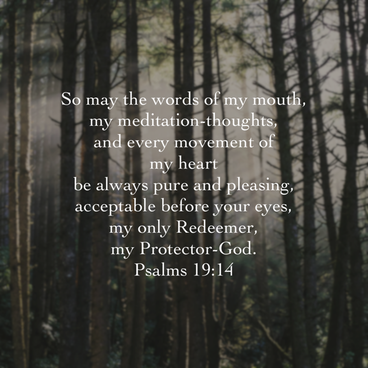|
Good Morning!
Today is Pentecost. Happy Birthday to the Church!
When we meet in person, we share joys and concerns. As we gather separately, we can still do that. Take some time to reflect on your week. Pray for both those things that have given you joy, and those things that have given you worry. If you would like, you can share these in the comments below.
During Lent, we shared both on our website and on our Facebook page devotionals written by church members in past years. This served as a nice way to connect, even after we stopped meeting in person. Because it will still be some time before we are physically together, we thought that continuing some devotions would be a great way to continue reaching out.
Pick out a few verses or a passage of scripture that mean something to you. Write a paragraph or two (or more, if you need to!) about your reflections on that passage, and a small prayer. Email that to the church's email: [email protected]. We plan to share these on both the church website and Facebook page.
Our scripture for this lesson is Hosea 11:1-2, 7-10 and Hosea 12:1-2, 6-14.
Introduction
One hot summer day, the cool green watermelon was as appealing as gourmet ice cream. A swift stroke of a knife later, though, and everyone gathered around the table winced in disgust. The watermelon had rotted from the inside out. The rind was perfect, but the dead white insides reeked of decay. Disappointment quickly gave way to revulsion as we tried to escape the nauseating stench. The beautiful fruit was rotten to the core. The northern kingdom of Israel of the mid-eighth century BC looked beautiful on the surface as well, like the nation had it all together. But it too was rotten at the core. And God had had enough of Israel’s revolting behavior.
Lesson Context
A general time line for Hosea’s prophetic ministry is 755-725 BC. This is computed with reference to the reigns listed in Hosea 1:1, as well as the fact that the northern kingdom of Israel, Hosea’s primary focus, ceased to exist in 722 BC. Israel’s King Jeroboam II, listed in Hosea 1:1, reigned from about 793 to 753 BC. He was a strong ruler politically. He expanded Israel’s borders and made Israel the leading nation in Palestine and Syria (see 2 Kings 14:23-29). Israel was wealthy and proud of its success. Turning their backs on God, the people also found it all too easy to shift allegiance to the fictitious deity known as Baal (Hosea 2:8,13); this went hand in hand with injustice (Hosea 4:1-2). In confronting this idolatry, God called Hosea to live out a unique and difficult parable of God’s love for Israel (see chapters 1-3). Hosea’s style did not involve pronouncing what we might call highly directed prophecies -- those beginning with the command, “Hear,” followed by named addressees -- the way other prophets did (contrast Jeremiah 10:1; 22:2, etc.). Two exceptions are found in Hosea 4:1 and Hosea 5:1. Following those pronouncements, Hosea simply continued his generalized prophetic pronouncements on wayward Israel. For this reason, the organization of the book can be difficult to determine.
Lesson
When we meet in person, we discuss the text of the lesson, and how it relates to our lives. The questions provided in the Sunday School book will be used to start these discussions for us now. Reflect on each question as you read it, and think about your answer. If you are working through the lesson with someone else, discuss your thoughts together. Feel free to share your thoughts, answers, and questions with the rest of the class in the comments.
Conclusion
All too frequently we feel the sneaky satisfaction of having gotten away with something. And our choices often convey to others that we are the most important people in our lives. We feel secure because of what we own or who we know; when trouble comes, we try to solve our own problems by way of people and stuff. Suddenly Israel looks as familiar as our reflection in the mirror. It's time to leave those things behind and trust in God. It's time to show through our actions that we follow God only.
Prayer
Dear Lord, help us put hands and feet to our claims to follow you -- and convict us when we don't. In Jesus' name we pray. Amen.
Benediction
This version of our benediction comes from the Passion Translation.
0 Comments
Leave a Reply. |
AuthorWe are a small, rural Presbyterian church in southwestern Pennsylvania. Archives
July 2024
Categories
All
|



 RSS Feed
RSS Feed